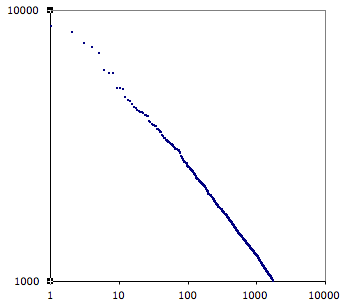I inherited from my father an affection for cartoons. I still have his books of Punch, and a complete set of New Yorker cartoons. One of the standard tropes in these collections is set in a gentlemen’s club. Two large cigar smoking elderly gentlemen recline in leather arm chairs. One says something to the other. Such as: “I think I’ve acquired some wisdom over the years, but there doesn’t seem to be much demand for it.”
 Men’s clubs seem to be rare in America. We used to have lots of them. The suburbs and television sucked the life out of the, or so I’m told. And the term “gentlemen’s club” now has become a euphemism.
Men’s clubs seem to be rare in America. We used to have lots of them. The suburbs and television sucked the life out of the, or so I’m told. And the term “gentlemen’s club” now has become a euphemism.
But, for the rich, the men’s club solved a problem. It got them out of the house. Which is a serious problem if your a type A over achiever, since chances are you married a type A over achiever. Imagine the trouble. You sell your startup and decide to spend more time with the family only to discover there isn’t really room at home for two over achievers 24×7.
In the good old day’s you’d join a good club. And added bonus: you could sit around and whinging about who the youth of today are going to hell in a hand basket.
But of course capitalism is very good at filling demand, particularly when those who have the need happen to have disposable income. And thus we have the venture capital firm. It’s actually better than the classic gentlemen’s club. You can still have the comfortable digs, the high end dinning room, the subscription to all the daily rags. But it’s better! Instead of complaining about the young you get to invite them in and give them advise!
That’s an old joke of mine, though it’s not entirely clear if it’s a joke or a deep insight into some aspect of the venture capital firm’s value proposition for it’s partners. Memory is an untrustworthy beast, but I’m pretty sure I came up with this joke after hearing of a VC firm in the valley that had a wall down the middle; one one side it was pure luxury and on the other it was standard spartan office space. As I remember the story the partners would always meet the entrepreneurs on the spartan side of the wall.
And so, it was with great delight that I read an article in today’s paper. A friend of mine, having recently exited from his last of a series of successful entrepreneurial activities appears to have taken my insight to heart. He is setting up a startup incubator here in Boston. And make no mistake: that’s is honorable work. But this was the sentence that delighted me:
English says he’s planning an “outrageous” workspace that will transform into a club at 6 PM, with regular events that “celebrate creative people” like dancers, sculptors, and clothing designers.
That is definitely an improvement on my original insight.



 I read Seligman’s
I read Seligman’s  AOL recently released a huge sample of search engine queries. In a highly questionable move they tied these queries to reasonably anonomous user identifiers; for example we know that user known as #724 searched for “how to install a glue down floor”, as well as “carbol tunnel” etc. He did 366 searchs between March 1st and May 5 2006.
AOL recently released a huge sample of search engine queries. In a highly questionable move they tied these queries to reasonably anonomous user identifiers; for example we know that user known as #724 searched for “how to install a glue down floor”, as well as “carbol tunnel” etc. He did 366 searchs between March 1st and May 5 2006.